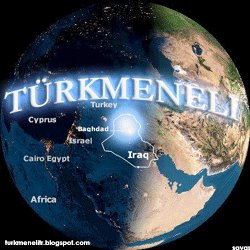By ANTHONY H. CORDESMAN
Published: May 9, 2006
Washington
Skip to next paragraph
Readers’ Opinions
Forum: The Transition in Iraq
SOME pundits and politicians have been floating the idea that America consider dividing Iraq into three ethno-religious entities, saying this would not only stem the insurgency but also allow our troops an earlier exit. They are wrong: fracturing the country would not serve either Iraqi or United States interests, and would make life for average Iraqis even worse.
The first problem is that Iraq does not have a neat set of ethnic dividing lines. There has never been a meaningful census of Iraq showing exactly how its Arab Sunnis, Arab Shiites, Kurds and other factions are divided or where they live. The two elections held since the toppling of Saddam Hussein have made it clear, however, that Iraq's cities and 18 governorates all have significant minorities.
Thus any effort to divide the country along sectarian and ethnic lines would require widespread "relocations." This would probably be violent and impoverish those forced to move, leave a legacy of fear and hatred, and further delay Iraq's political and economic recovery.
Moreover, Iraq is heavily urbanized, with nearly 40 percent of the population in the multiethnic greater Baghdad and Mosul areas. We have seen in Northern Ireland and the Balkans how difficult it is to split cities, and with Iraq's centralized and failing services and impoverished economy, violence and economics cannot be separated. Deciding where Kirkuk, a key oil city, belonged would pit the Kurds against all the rest of Iraq's factions. Basra, the nation's port, is already under the sway of Shiite Islamist militias and could lose all of its secular character if the nation divided. In addition, the nation could not be partitioned without dividing the army, the security forces and the police. The regular military is largely Shiite with a significant number of Kurds. The Ministry of Interior forces are largely Shiite, and the police are hopelessly mixed with militias and local security forces that split according to local tribal, sectarian and ethnic ties. Dividing the country essentially means dividing the army and security forces and strengthening the militias — all of which would lead to more violence.
And of course, there is no way to divide Iraqi that will not set off fights over control of oil. More than 90 percent of Iraq's government revenues come from oil exports. The Sunni Arab west has no developed oil fields and thus would have no oil revenues. The Kurds want the northern oil fields, but have no legitimate claim to them and no real way to export the oil they produce (their neighbors Iran, Syria and Turkey have restive Kurdish populations of their own and thus no interest in helping Iraq's Kurds achieve self-sustaining freedom). Control of Basra would also be an issue, with various Shiite groups looking to separate and take control of the oil in the south.
Dividing Iraq would also harm regional stability and the war on terrorists. Sunni Islamist extremist groups with ties to Al Qaeda already dominate the Sunni insurgents, and division would only increase their hold over average Iraqis. And with Iraqi Sunnis cut out of oil money, Arab Sunni states like Egypt and Saudi Arabia would be forced to support them, if only to avoid having the Islamist extremists take over this part of Iraq.
Iran, of course, would compete for the Iraqi Shiites. The Kurds have no friends: Turkey, Iran and Syria would seek to destabilize the north and exploit the divisions between the two main Kurdish political unions. In the end, these divisions could spill over into the rest of the Middle East and the Arab world, creating a risk of local conflicts and the kind of religious tension that feeds Islamist extremism.
Washington has made serious mistakes in Iraq, and they may lead to civil war. Dividing Iraq, however, is virtually certain to make things worse. It would convey the message that America has been defeated and abandoned a nation and a people. Even if one could overlook the fact the United States effectively broke Iraq and has a responsibility to its 28 million people, it is impossible to deny that leaving behind a power vacuum in an already dangerous region is hardly a viable strategy.
Anthony H. Cordesman, a senior fellow at the Center for Strategic and International Studies, is the author of "The Iraq War: Strategy, Tactics and Military Lessons."
Next Article in Opinion (3 of 9) »
Published: May 9, 2006
Washington
Skip to next paragraph
Readers’ Opinions
Forum: The Transition in Iraq
SOME pundits and politicians have been floating the idea that America consider dividing Iraq into three ethno-religious entities, saying this would not only stem the insurgency but also allow our troops an earlier exit. They are wrong: fracturing the country would not serve either Iraqi or United States interests, and would make life for average Iraqis even worse.
The first problem is that Iraq does not have a neat set of ethnic dividing lines. There has never been a meaningful census of Iraq showing exactly how its Arab Sunnis, Arab Shiites, Kurds and other factions are divided or where they live. The two elections held since the toppling of Saddam Hussein have made it clear, however, that Iraq's cities and 18 governorates all have significant minorities.
Thus any effort to divide the country along sectarian and ethnic lines would require widespread "relocations." This would probably be violent and impoverish those forced to move, leave a legacy of fear and hatred, and further delay Iraq's political and economic recovery.
Moreover, Iraq is heavily urbanized, with nearly 40 percent of the population in the multiethnic greater Baghdad and Mosul areas. We have seen in Northern Ireland and the Balkans how difficult it is to split cities, and with Iraq's centralized and failing services and impoverished economy, violence and economics cannot be separated. Deciding where Kirkuk, a key oil city, belonged would pit the Kurds against all the rest of Iraq's factions. Basra, the nation's port, is already under the sway of Shiite Islamist militias and could lose all of its secular character if the nation divided. In addition, the nation could not be partitioned without dividing the army, the security forces and the police. The regular military is largely Shiite with a significant number of Kurds. The Ministry of Interior forces are largely Shiite, and the police are hopelessly mixed with militias and local security forces that split according to local tribal, sectarian and ethnic ties. Dividing the country essentially means dividing the army and security forces and strengthening the militias — all of which would lead to more violence.
And of course, there is no way to divide Iraqi that will not set off fights over control of oil. More than 90 percent of Iraq's government revenues come from oil exports. The Sunni Arab west has no developed oil fields and thus would have no oil revenues. The Kurds want the northern oil fields, but have no legitimate claim to them and no real way to export the oil they produce (their neighbors Iran, Syria and Turkey have restive Kurdish populations of their own and thus no interest in helping Iraq's Kurds achieve self-sustaining freedom). Control of Basra would also be an issue, with various Shiite groups looking to separate and take control of the oil in the south.
Dividing Iraq would also harm regional stability and the war on terrorists. Sunni Islamist extremist groups with ties to Al Qaeda already dominate the Sunni insurgents, and division would only increase their hold over average Iraqis. And with Iraqi Sunnis cut out of oil money, Arab Sunni states like Egypt and Saudi Arabia would be forced to support them, if only to avoid having the Islamist extremists take over this part of Iraq.
Iran, of course, would compete for the Iraqi Shiites. The Kurds have no friends: Turkey, Iran and Syria would seek to destabilize the north and exploit the divisions between the two main Kurdish political unions. In the end, these divisions could spill over into the rest of the Middle East and the Arab world, creating a risk of local conflicts and the kind of religious tension that feeds Islamist extremism.
Washington has made serious mistakes in Iraq, and they may lead to civil war. Dividing Iraq, however, is virtually certain to make things worse. It would convey the message that America has been defeated and abandoned a nation and a people. Even if one could overlook the fact the United States effectively broke Iraq and has a responsibility to its 28 million people, it is impossible to deny that leaving behind a power vacuum in an already dangerous region is hardly a viable strategy.
Anthony H. Cordesman, a senior fellow at the Center for Strategic and International Studies, is the author of "The Iraq War: Strategy, Tactics and Military Lessons."
Next Article in Opinion (3 of 9) »


